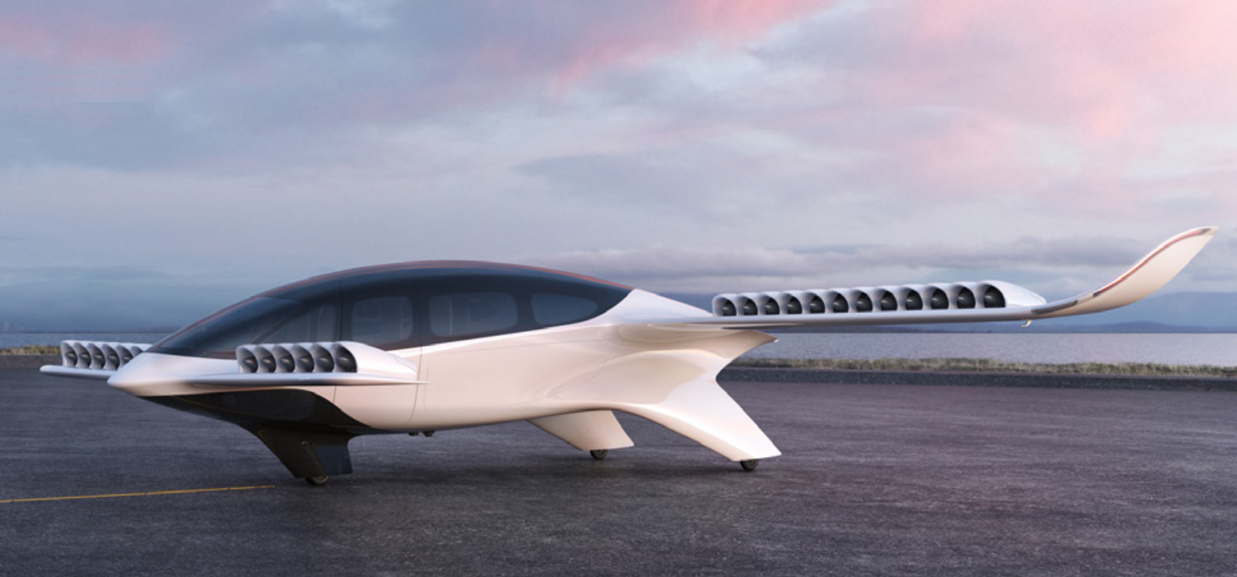
German regional air mobility startup Lilium is to go public in a deal expected to provide up to $830 million in funds to complete certification, begin production and launch commercial operation of its piloted seven-seat Lilium Jet air taxi in 2024.
Munich-based Lilium is to list on the Nasdaq through a merger with Qell Acquisition Corp., a special-purpose acquisition company (SPAC) led by Barry Engle, a former president of General Motors North America.
Expected to close in the second quarter, the SPAC transaction values the company at approximately $3.3 billion. Total gross proceeds are expected to be approximately $830 million, including $380 million in cash held in trust and $450 million from a PIPE, or private investment in public entity.
The PIPE includes investments from Tesla and SpaceX backer Baillie Gifford and from funds managed by BlackRock, Tencent, transportation infrastructure company Ferrovial, Liechtenstein private banking company LGT, Palantir and FII Institute. Lilium has previously raised more than $376 million.
Lilium is the latest advanced air mobility startup to strike a SPAC deal. Archer merged with Atlas Crest Investment Corp. in a transaction that raised $1.1 billion and valued the company at $3.8 billion and Joby Aviation merged with Reinvent Technology Partners in a deal that raised $1.6 billion and valued the company at $6.6 billion.
Announcing the merger, Lilium also unveiled its production design, which has been scaled up to seven seats from the five-seat technology demonstrator that conducted unmanned flight tests in 2019. The aircraft uses ducted-fan vectored thrust for electric vertical-takeoff-and-landing (eVTOL)—36 fans on the wing and foreplane providing lift in vertical flight, thrust in forward flight and flight control in all phases.
With a span of 13.9m (45.6 ft.), the Lilium Jet is projected to have a cruise speed of 280 kph (175 mph) at 10,000 ft. and a range of more than 250 km (155 mi.) including reserves. This is based on batteries with a cell-level energy density of 320 Wh/kg, up from the 250 Wh/kg currently available commercially.
Lilium has full-size 320-330 Wh/kg pouch cells in bench testing, Lilium cofounder and CEO Daniel Wiegand told Aviation Week. These lithium-ion batteries use a silicon-rich anode to increase power density and enable fast charging. Lilium is achieving an 800-cycle life on its use profile, he said.
Based on 320 Wh/kg batteries, the takeoff gross weight of 3,175 kg (7,000 lb.)—the maximum allowed under the European Union Aviation Safety Agency’s (EASA) SC-VTOL certification regulations for eVTOLs—includes a payload of 700 kg and 953 kg of batteries storing 305 kWh of energy.
Founded in 2015, Lilium decided in 2017 to scale its aircraft up to seven seats from five to target the intercity shuttle market. The startup applied for concurrent type certification of its aircraft with EASA and the FAA in 2018 and received its CRI-A01 certification basis from EASA in 2020, Wiegand said.
Proceeds from the reverse merger with Qell are intended to fund the launch of commercial operations in Florida and Germany in 2024. This includes finalization of production facilities in Germany, launch of serial production and completion of type certification. Lilium will be responsible for final assembly, with partners supplying the airframe, motors and other systems.
The Lilium Jet is designed for ease of production, using automotive-style manufacturing methods and fully automated production of electric engines, actuators and batteries. Toray Industries is providing the carbon-fiber composites for the airframe and Spanish aerostructures group Aciturri will manufacture the fuselage and wing. More suppliers will be announced shortly, Wiegand said.
Lilium will own the booking and scheduling platform for its branded service, but the aircraft will be purchased by lessors and flown on Lilium’s behalf by partners with air operator certificates (AOC).
“We will have AOC partners that operate under our brand. It will be as if Lilium is an airline,” Wiegand said. “We want to leverage the whole ecosystem capability. It does not make sense to reinvent that ourselves.” This approach reduces the funding required to launch commercial operations, he added.
Although it plans to carry its first paying passengers in Germany and Florida in 2024, Lilium aims to be operational with regional air mobility networks in two or three regions by 2025.
The startup said it has secured $200 million in commitments from infrastructure partners, including agreements with Ferrovial and Tavistock Development to build and operate up to 14 vertiports in Florida. Discussions are under way with partners for 10 vertiports to build a network in Europe, Lilium said.





